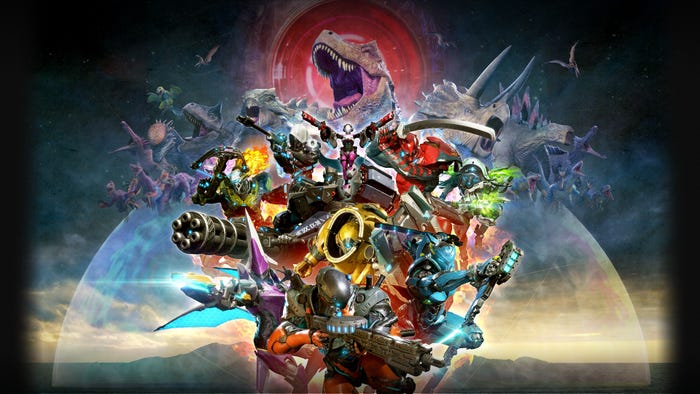Analysis: A Wizard Did It - Internal Consistency In Video Games
Each week James Bishop probes the depths of the characters, dialogue and writing in video games. This time, he explores internal consistency and narrative coherence in games like Mass Effect and Dead Space.

[Each week, Gamasutra contributor James Bishop probes the depths of the characters, dialogue and writing in video games. This time, he explores internal consistency and narrative coherence in games like Mass Effect and Dead Space.] Chekhova's gun has been stated in numerous ways over the years, but the general consensus is that it goes a little something like this: 'One must not put a loaded rifle on stage if no one is thinking of firing it.' Though it's applied most often to foreshadowing, the argument could be made that a gun also shouldn't appear out of nowhere at the last second in some kind of deus ex machina. All things within a narrative exist to serve a purpose. Even if that purpose is to be meaningless or to behave only as a distraction, everything requires one from the large to the small. By stressing the importance of foreshadowing, it can be interpreted that Anton Chekhov also happened to champion narrative coherence and, by extension, internal consistency. Simply put, the story must make sense. Internal consistency is paramount in any good story. It simply must flow logically from one point to the next. Even when crafting fiction set in locations that are otherworldly, the universe presented must appear to adhere to some set of boundaries placed upon it. If we're told that an object is a gun, it's to be expected that it should act like any rational person understands a gun to function. There are certain elements that simply must follow the rules, so to speak, in order for folks to become truly immersed. Similar to a glitch in The Matrix, any missteps in video games can cause the player to suddenly and irrevocably be drawn out of the experience. A number of developers have been incredibly uneven with narrative coherence in the past, and it almost always comes back to one or two things not meshing with the rest of the game and jarring the player.  A Treatise On Heat Sinks BioWare is one developer that has been all over the map when it comes to internal consistency. Take, for example, the Mass Effect franchise. There were massive changes to the gameplay systems from the first game to the second, which included the introduction of limited ammo and the removal of 'Omni-gel' among other things. These changes are all explained away as part of the overall narrative. The Codex, Mass Effect's version of an encyclopedia or story bible, explains that the weapons originally used incredibly small slivers of mass and fired them so quickly that, in effect, they could never run out of ammo. Imagine each atom as a projective and then sticking a small hunk of metal into a weapon to act as the source of atoms and you get the idea from there. Essentially, this eliminated the need for ammo of any kind. Instead, the gun would slowly overheat and require you to pause to let it cool before you could fire again. Apparently, this was chalked up to a bad design decision or was simply considered not as cohesive once other changes were implemented during the interim between the two games. Limited ammo returned but in a fashion that, when explained, makes perfect sense. You see, the Geth had been using removable heat sinks to get around that pesky need to cool the guns. The player isn't gathering ammo in the game but new heat sinks that were designed to mimic the Geth's technology. This provides a nice solid explanation in the lore while also allowing for the gameplay illusion of scarcity. In fact, the Mass Effect franchise tends to handle this kind of thing very well. The same can't be said for all BioWare franchises, unfortunately.
A Treatise On Heat Sinks BioWare is one developer that has been all over the map when it comes to internal consistency. Take, for example, the Mass Effect franchise. There were massive changes to the gameplay systems from the first game to the second, which included the introduction of limited ammo and the removal of 'Omni-gel' among other things. These changes are all explained away as part of the overall narrative. The Codex, Mass Effect's version of an encyclopedia or story bible, explains that the weapons originally used incredibly small slivers of mass and fired them so quickly that, in effect, they could never run out of ammo. Imagine each atom as a projective and then sticking a small hunk of metal into a weapon to act as the source of atoms and you get the idea from there. Essentially, this eliminated the need for ammo of any kind. Instead, the gun would slowly overheat and require you to pause to let it cool before you could fire again. Apparently, this was chalked up to a bad design decision or was simply considered not as cohesive once other changes were implemented during the interim between the two games. Limited ammo returned but in a fashion that, when explained, makes perfect sense. You see, the Geth had been using removable heat sinks to get around that pesky need to cool the guns. The player isn't gathering ammo in the game but new heat sinks that were designed to mimic the Geth's technology. This provides a nice solid explanation in the lore while also allowing for the gameplay illusion of scarcity. In fact, the Mass Effect franchise tends to handle this kind of thing very well. The same can't be said for all BioWare franchises, unfortunately.  Characters Are Who They Are Internal consistency is also direly important when it comes to character design. When you craft someone that's meant to have been an author their entire career, perhaps they shouldn't be slinging around large assault rifles like they were born with one attached to the forearm. Characters should still act like themselves even when the world seems lost. Thank goodness for Isaac Clarke. Isaac Clarke is the protagonist of Dead Space and Dead Space 2. Unlike most protagonists, he doesn't have any particularly stellar examples of bravery, courage or heroism in his repertoire. Issac's just your average engineer (also known as an above-average persona) who wants to see his girlfriend again. He solves problems in a way that it seems likely an engineer might solve them. He fixes broken parts of technical items and uses the tools of his trade to somehow ward off those pesky Necromorphs. Even in Dead Space's second installment, Isaac remains true to Isaac. He just so happens to have had quite a bit of experience in fighting off this particular kind of infestation. Isaac's dementia, which manifested in the original Dead Space, carries over consistently and intensifies as the game goes on. He's grown and changed but he's still the engineer at heart. In short, Isaac remains Isaac.
Characters Are Who They Are Internal consistency is also direly important when it comes to character design. When you craft someone that's meant to have been an author their entire career, perhaps they shouldn't be slinging around large assault rifles like they were born with one attached to the forearm. Characters should still act like themselves even when the world seems lost. Thank goodness for Isaac Clarke. Isaac Clarke is the protagonist of Dead Space and Dead Space 2. Unlike most protagonists, he doesn't have any particularly stellar examples of bravery, courage or heroism in his repertoire. Issac's just your average engineer (also known as an above-average persona) who wants to see his girlfriend again. He solves problems in a way that it seems likely an engineer might solve them. He fixes broken parts of technical items and uses the tools of his trade to somehow ward off those pesky Necromorphs. Even in Dead Space's second installment, Isaac remains true to Isaac. He just so happens to have had quite a bit of experience in fighting off this particular kind of infestation. Isaac's dementia, which manifested in the original Dead Space, carries over consistently and intensifies as the game goes on. He's grown and changed but he's still the engineer at heart. In short, Isaac remains Isaac.  Consistent Not Realistic Unfortunately, the idea of internal consistency is sometimes conflated with that of realism. In the classic Simpson's episode, Lucy Lawless explains away any nitpicky issues with the show Xena by insisting that 'a wizard did it.' After some debate, this is eventually accepted because, after all, wizards can work magic and magic makes the impossible, possible. Is this realistic? Not particularly. So realism is out in this case. But it's certainly consistent within the universe. In theory, a wizard could have done any of the things attributed to them simply by virtue of being a wizard. Because of this, it borders on absurdity but never crosses that line. Soren Johnson recently argued that games need to 'stop making sense' in order to truly evolve. This works well enough if you consider one single path of evolution to be the only one in play. However, if you consider video games and the narrative opportunities they present to run parallel to that of other mediums, making more sense than they have in the past is instrumental to achieving progress. Absurdity is often only truly absurd out of context. The fact that Johnson points out that it's ridiculous that plants would be fighting zombies at all, but that it somehow works within the game, only further underlines my point. Video games need only make sense within themselves. [James Bishop is a mild-mannered English graduate by day, by night he writes for Hellmode. Sometimes he tweets too. (@jamesbishop) If you're not one of those, however, he can be reached at jamesrollinbishop at gmail dot com.]
Consistent Not Realistic Unfortunately, the idea of internal consistency is sometimes conflated with that of realism. In the classic Simpson's episode, Lucy Lawless explains away any nitpicky issues with the show Xena by insisting that 'a wizard did it.' After some debate, this is eventually accepted because, after all, wizards can work magic and magic makes the impossible, possible. Is this realistic? Not particularly. So realism is out in this case. But it's certainly consistent within the universe. In theory, a wizard could have done any of the things attributed to them simply by virtue of being a wizard. Because of this, it borders on absurdity but never crosses that line. Soren Johnson recently argued that games need to 'stop making sense' in order to truly evolve. This works well enough if you consider one single path of evolution to be the only one in play. However, if you consider video games and the narrative opportunities they present to run parallel to that of other mediums, making more sense than they have in the past is instrumental to achieving progress. Absurdity is often only truly absurd out of context. The fact that Johnson points out that it's ridiculous that plants would be fighting zombies at all, but that it somehow works within the game, only further underlines my point. Video games need only make sense within themselves. [James Bishop is a mild-mannered English graduate by day, by night he writes for Hellmode. Sometimes he tweets too. (@jamesbishop) If you're not one of those, however, he can be reached at jamesrollinbishop at gmail dot com.]
About the Author(s)
You May Also Like













